Civil Liberties, Civil Rights, Political Prisoner, Right To Dissent, Violations of U.S. and International Law, War Resister, Whistleblowers
Podcast: Play in new window | Download
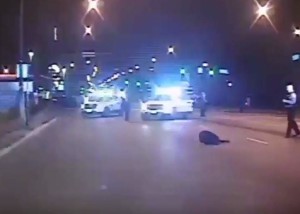
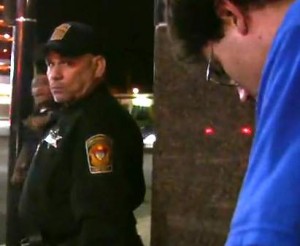
Black History Month And Racist Police Violence
February is Black History Month in America. And on the very first day of Black History Month this year, Tyre Nichols, a young Black man, was laid to rest in Memphis, Tennessee, having been murdered by police officers of the Memphis police department, as he simply tried to get home.
I find it almost impossible to keep track of all the hundreds of cases of racist police violence against innocent Black and brown men and women in America. At the moment our nation is transfixed and in a state of great anger and anguish over the brutal murder of Tyre Nickols in Memphis, Tennessee. And the killings keep coming. In my city, Los Angeles, we’re outraged by the police murder of Keenan Anderson, the cousin of Black Lives Matter co-founder, Patrice Cullers. Both murders were filmed, and so once again the American people saw with their own eyes just how violent and despicable the police can be; and how indifferent the offending police officers are to the fact that what they are doing is being captured on film for all the world to see.
Now, the overwhelming percentage of victims of police assaults are people of color who’ve been murdered, or otherwise brutalized by white cops. But as the Nichols case demonstrates, police violence is so ingrained in policing in America that Black cops, too, often do not hesitate to employ gross violence in the course of their policing.
What accounts for this epidemic of cop killings of people of color in America? Is it connected to America’s history of Black enslavement? And, if requiring the police to be filmed while making arrests has not ended police violence, what will it take to finally end this epidemic of racist policing?
Guest – Attorney Carl Douglas is a partner in the law firm, Douglas/Hicks, one of Keenan Anderson’s family attorneys who’ve just filed a $50 million dollar claim against the City of Los Angeles for what the LAPD did in the Keenan Anderson case. Attorney Douglas, after working 6 years as a Public Defender, then spent 12 years in the Los Angeles law firm of famed, and now deceased, anti-police abuse attorney Johnnie Cochran. And now, his own law firm, the Douglas/Hicks law firm, specializes in police misconduct and other civil rights cases, criminal defense work, as well as personal injury and employment discrimination cases. In short, he is a true “lawyer for the people”.
—-
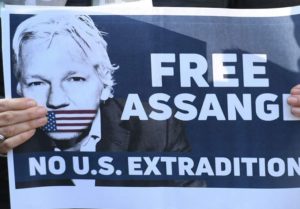
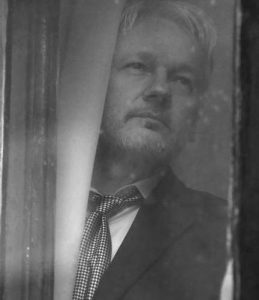
CIA Spied On Julian Assange Embassy Visitors: Lawsuit Update
We speak today with New York City attorney Deborah Hrbek who along with her law partner Margaret Ratner Kunstler are suing the CIA, its former Director Mike Pompeo, and the Company they contracted with to spy for them on Julian Assange and his visitors including attorneys at the Ecuadorian Embassy in London. Assange lived there for seven years having been granted political asylum by the Ecuadorian government. The CIA contract employee DC Global copied information off of their cell phones and computers when they visited their client Julian Assange in the Ecuadorian Embassy in London.
They are demanding an injunction forbidding the CIA to use the private information they stole from their devices. The CIA says that it has every right to do what it did because the plaintiffs had no right to expect privacy.
Julian Assange is one the greatest journalist of our time. His exposures of American war crimes, corruption in the Hillary Clinton presidential campaign, and CIA spying on us using our cell phones and smart TVs was the most embarrassing revelations ever revealed about the American war machine and it’s diplomatic corps.
In retaliation the US establishment and its institutions including both political parties and the intelligence agencies took their revenge on Julian by first smearing him, according to a Defense Department directive, and then threatening him with being charged as a spy under the Espionage Act so that he had to take refuge in the Ecuadorian Embassy.
Then former President Donald Trump indicted Assange for espionage and had their British collaborators remove him from the Ecuadorian Embassy and put him in London’s Belmarsh, a notorious maximum-security prison, where he has been tortured daily for the last three years by being held in solitary confinement and denied adequate medical care.
The United States and its servant the British Crown Prosecutorial Service trashed the rule of law throughout the entire extradition proceeding. They lied about the conditions of confinement Assange would face in United States. Even the trial judge thought he might kill himself. The extradition order is eminent.
AssangeDefense
Guest – Deborah Hrbek is a founding partner at Hrbek Kunstler, a Manhattan entertainment law firm that has represented WikiLeaks in media law matters since 2015. In the course of her work with WikiLeaks journalist and filmmakers she has visited Julian Assange many times, both at the Ecuadorian Embassy at London where he was there as a political Ashlee and in recent years in Belmarsh prison, a maximum-security prison where he has been incarcerated since April 2019. Hrbek is one of the plaintiffs in “Kunstler versus the CIA”, an action that seeks to hold the US government accountable for its illegal activities in connection with its prosecution of Julian Assange.
Hosted by attorneys Michael Smith and Jim Lafferty

——————————————-
Civil Liberties, Human Rights
Podcast: Play in new window | Download

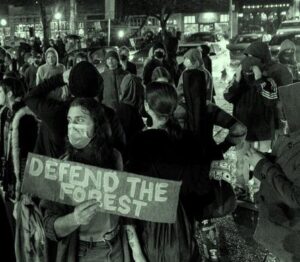
The Movement To Stop “Cop City”
Less than two weeks after Atlanta police fatally shot an environmental activist, officials held a news conference to announce they are moving forward with plans to build a massive police and firefighter training center. Protesters have dubbed the $90 million Atlanta Public Safety Training Center “Cop City.”
Plans to build the training center have met with opposition from the local community and out-of-staters. Trees would be felled, undermining the city’s efforts to save its tree canopy and increasing the risk of flooding. Others oppose the center for its practice of “urban warfare” and its proximity to poor and majority-Black neighborhoods. The Atlanta Police and Fire Chiefs claim the center will replace substandard trainings and boost morale. The police department especially has had difficulty hiring and retaining officers.
The January 31 news conference came nearly two weeks after the January 18 police killing of an activist known as Tortuguita, after officials claimed that the 26-year-old shot a state trooper. Officers said they fired in self-defense, but protesters question the police narrative, noting the lack of body camera footage of the shooting. Joining us to talk about Stop Cop City and the national epidemic of police violence is Kamau Franklin.
Guest – Kamau Franklin is a former practicing attorney from New York, the founder of the national grassroots organization Community Movement Builders, and co-host of the podcast “Renegade Culture.”
—-
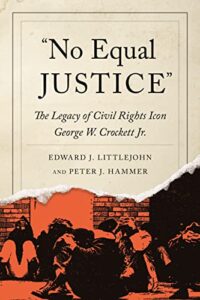
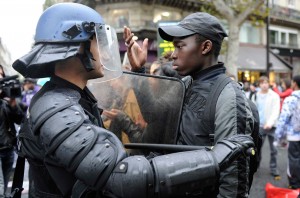
No Equal Justice: The Legacy of Civil Rights
Professor Peter Hammer is the Director of the Damon J Keith Center for Civil Rights at Wayne State Law School, and has long been a strong advocate for shining light on the intersection of race, class, power and the law. He has published scores of articles and books covering such critical issues as the Flint Water Crisis, the Detroit Future Cities, healthcare, education, racism and capitalism, among others.
What brings us here today is that he and his colleague, Professor Emeritus Edward Littlejohn, recently wrote a critically acclaimed book No Equal Justice: The Legacy of Civil Rights Icon George W. Crockett Jr, just released in 2022. This book tells the amazing story of George W. Crockett and his trailblazing life. He was the grandson of a slave and son of a carpenter. Crockett became the only Black graduate of University of Michigan Law School in 1934, the first Black man to work as a staff attorney for the United Auto Workers in the 1940’s, the first Black law partner in the first integrated law firm in the country in the 1950’s, one of the first Black men to be elected as a judge on Detroit’s criminal court in the 1960’s, and the oldest African American ever elected to the U.S. Congress.
He was also, along with Ernie Goodman and Maurice Sugar, one of the founders of the National Lawyers Guild, the first integrated bar association in the country, in which he played a critical role during the civil rights movement of the 1960’s, including the creation of the NLG Committee to Assist Southern Lawyers.
Hosted by Attorneys Heidi Boghosian, Marjorie Cohn and Julie Hurwitz

———————————-
Civil Liberties, Civil Rights, Human Rights, Racist Police Violence
Podcast: Play in new window | Download
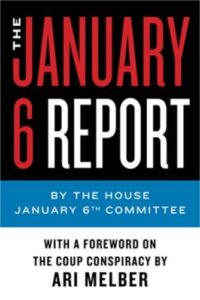
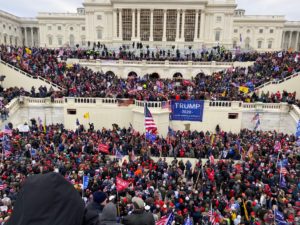
The January 6 Report
The January 6 Report” by the House January 6 Committee has just been published by Harpercollins. It is a page turner. Most strikingly, the report documents the multi-pronged attack that Trump plotted. The crucial point made by the January 6 Committee report is demonstrating the profound misconception to view the January 6 invasion of the Capitol as merely a group of Trump supporters gone wild. The plot was not limited to the January 6 violence at the Capitol.
Rather, as the report documents, January 6 was a culmination of months of plotting by Trump to overthrow a lawful election and stay in power. He came very close to accomplishing a coup d’état, a blow against the state. Democracy in the United States, however limited, would’ve ended.
The American constitution was written in Philadelphia in 1787. Benjamin Franklin was there. When they concluded Franklin famously said “we have a republic, if we can keep it.“ Can we keep it? Will Trump be indicted by the Department of Justice and convicted for the criminal activity he orchestrated in order to keep himself in power, after losing the election two years ago by seven million votes? If he is not indicted, what will be the impact on the future of democracy in the United States?
Guest – attorney Stephen Rohde who recently reviewed The January 6 Report with a forward by the author Ari Melber. Rohde’s review appeared in “ Truthdig” and in the LA Progressive“. Attorney Stephen Rohde is a constitutional scholar, past Chair of the ACLU Foundation of California, an author of books on the Constitution, who frequently reviews books for the Los Angeles Review of Books. And Mr. Rohde is a leader in the national campaign to free the imprisoned investigative journalist Julian Assange.
—-
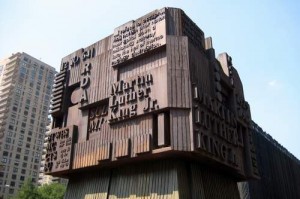
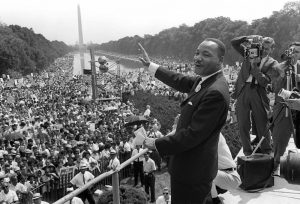
Martin Luther King Jr. : A Dream Realized
We take a look at where the long struggle to end racial injustice stands in the United States today. Oh, some progress has surely been made, but to say we’ve a very long way to go before Martin Luther King Jr.’s dream can be considered “realized” is both true and also a sad and gross understatement; a sad commentary on the role that white privilege and racial hatred continue to play in the United States, hundreds of years since our founding.
Guest – Attorney Sharon Kyle is the publisher and co-founder of the LA Progressive on-line newsletter and a former president of the Peoples College of Law, a law school in Los Angeles established by the National Lawyers Guild and other minority bar associations. Sharon Kyle is a member of the board of the ACLU Affiliate of Southern California and is its representative to the national board of the ACLU. Sharon Kyle is also an active member of the Los Angeles area Julian Assange Defense Committee; a member of the editorial board of the Black Commentator.com. Years before immersing herself in the law and social justice, Sharon Kyle was a member of several space flight teams at NASA’s Jet Propulsion Laboratory.

——————————-
Civil Liberties, Civil Rights, Supreme Court, worker's rights
Podcast: Play in new window | Download
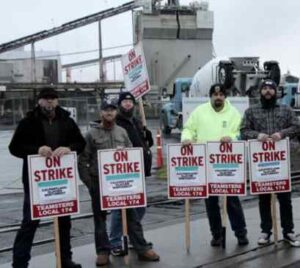
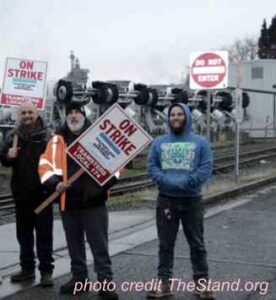
The Supreme Court Is About To Eviscerate The Right To Strike
Sixty-four years ago, workers and unions gained protection from state lawsuits while pursuing unfair labor practice claims with the federal National Labor Relations Board (NLRB). On January 10, the Supreme Court heard oral arguments in a case that threatens to unravel those protections. A company called Glacier Northwest is suing the International Brotherhood of Teamsters Local Union No. 174, after 85 truck drivers walked off the job. If the high Court rules in favor of Glacier, unions will have to defend against costly lawsuits. And that will likely discourage them from going on strike. A Court decision is expected by the end of June.
Seventy-one percent of the U.S. public supports labor unions. That’s the highest number since 1965. And with an increase in economic inequality, union strikes are on the uptick.
Founded in 1903, the International Brotherhood of Teamsters represents 1.2 million workers in the U.S., Canada, and Puerto Rico. Teamsters President Sean O’Brien remarked that: “Workers in America have the fundamental right to strike, and American workers have died on picket lines to protect it.” In recent years, however, the ultra-right-wing Supreme Court majority has issued decisions systematically eroding these rights.
Guest – Attorney Marjorie Cohn is a legal and political analyst who provides commentary on local, national and international media. She is professor emerita at Thomas Jefferson School of Law, a member of the bureau of the International Association of Democratic Lawyers and the board of Veterans for Peace. Her most recent book is “Drones and Targeted Killing: Legal, Moral, and Geopolitical Issues.” Marjorie Cohn at Truthout
—-
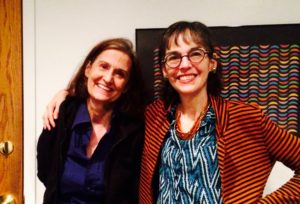
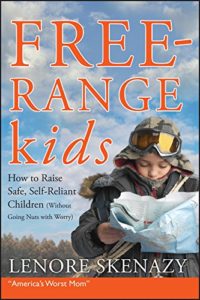
Free Range Kids
You may have heard about the shaming of parents who let their son or daughter walk to school by themselves, or ride public transportation alone. They’re often ridiculed on social media and cast as neglectful. But in some instances, the consequences have gone beyond public shaming.
In 2015 parents in Silver Spring, Maryland made national headlines they were investigated for child neglect for letting their children, ages 6 and 10, walk home from a park by themselves.
In another case Lenore Skenazy, a former New York Daily News columnist was called America’s worst mom after writing a column in 2008 about why she let her 9-year-old son ride the subway by himself.
Last year, Utah passed a law making it not a crime for parents to let their children play in a park without supervision or walk home alone from school. This is hopeful news for our guest Lenore Skenazy who has been advocating for so-called free range parenting laws for many years.
Under the law, neglect does not include allowing a child, whose basic needs are met and who is of sufficient age and maturity to avoid harm or unreasonable risk of harm, to engage in independent activities such as going to and from school by walking, running or bicycling, going to nearby stores or recreational facilities and playing outside.
A recent U.S. Census showed that 7 million of the nation’s 38 million children between the ages of 5 and 14 are left home alone on a regular basis, while the average time spent alone is six hours per week. Only a few states legislate an age under which kids may not be home alone.
Guest – Lenore Skenazy – New York City columnist-turned-reality TV show host got that title after letting her 9-year-old son take the subway, alone. In response to the enormous media blowback, she founded the book and blog, “Free-Range Kids,” which launched the anti-helicopter parenting movement. She has lectured internationally, including talks at Microsoft Headquarters and the Sydney Opera House, and has written for everyone from The Wall Street Journal to Mad Magazine. Yep. The Mad Magazine. And she’s a graduate of Yale.
Hosted by attorneys Heidi Boghosian and Marjorie Cohn

————————————–
Civil Liberties, Civil Rights, Crony Capitalism, Human Rights
Podcast: Play in new window | Download
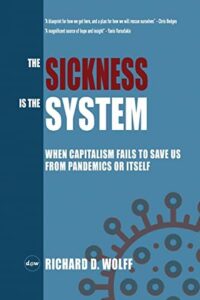
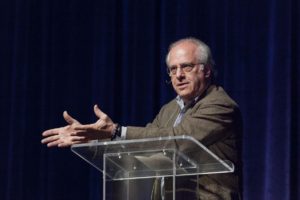
The Sickness is the System: When Capitalism Fails to Save Us from Pandemics or Itself
We all know almost instinctively that there is a connection between politics and economics. Today we talk with Professor Richard Wolff about that connection. We live in a world in economic turmoil, all the more so because of the US and NATO proxy war against Russia in Ukraine.
At home in the United States, we have the greatest wealth disparity and income disparity in a century. When Standard Old,now Exxon, owner John D. Rockefeller died he was worth $3 billion. Now Jeff Bezos is worth about $180 billion. There has not been a national increase in the minimum wage of $7.25 an hour in decades. Half the people in America are poor or near poor.
There has been a dramatic increase in labor militancy by American workers not seen since just before and just after World War II. US world hegemony is starting to fray even as the military budget increases.
This month Congress passed a budget bill with half of it going to the military. The military received 45 billion dollars more than they even asked for. What is going on? What are the prospects for political action independent of these two capitalist parties?
Guest – Richard D. Wolff is Professor of Economics Emeritus, University of Massachusetts, Amherst, and a Visiting Professor in the Graduate Program in International Affairs of the New School University, NYC. He is the founder of Democracy at Work and host of their nationally syndicated show Economic Update. His latest book is The Sickness is the System: When Capitalism Fails to Save Us from Pandemics or Itself, which can be found along with his other books Understanding Socialism and Understanding Marxism at www.democracyatwork.info.
—-


Israel’s Far Right Agenda
As reported in the New York Times, less than two weeks into its tenure, Israel’s new and extreme neo-fascist right-wing government has already undertaken a wave of items from its far-right agenda. Items that are designed to weaken the judiciary, entrench Israel’s control of the West Bank, and bifurcate the military’s chain of command so as to give far-right ministers greater control of matters related to Israel’s occupation.
It is likely to have profoundly negative implications for the Palestinian people, as well as profound implications for the already dismal chances of finding a peaceful resolution of the decades long Israeli/Palestinian conflict. Even a great numbers of Israelis have grave concerns about its new government and what its announced plans may mean for them.
Guest – Sandra Tamari is a Palestinian organizer and the Executive Director of Adalah Justice Project. She was the Co-chair of the Steering Committee for the U.S. Campaign for Palestinian Rights from 2015-2018 and a lead organizer of the Palestinian contingent to Ferguson, Missouri, in 2014.

———————————-
Civil Liberties, Civil Rights, Human Rights, Prison Industry, Racist Police Violence, U.S. Militarism
Podcast: Play in new window | Download
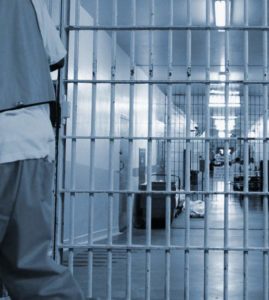
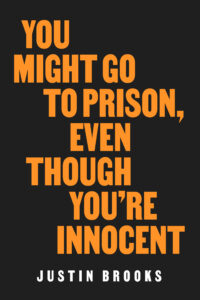
You Might Go to Prison, Even Though You’re Innocent
There is a common belief that if you’re arrested, you are probably guilty because “where there’s smoke, there’s fire.” People assume that only the guilty confess to crimes because why would an innocent person confess to a crime they didn’t commit? And when a person pleads guilty or is convicted by a jury, that’s the end of the matter, in the minds of most people.
In fact, many innocent people are arrested, especially people of color, due to racial profiling and other forms of discrimination by law enforcement. Implicit bias often infects the case as it moves through the criminal legal system – from the initial police stop, to interrogation, arrest, charging, trial and sentencing. This is particularly tragic when a person is charged with a capital crime for which the death penalty is imposed and that sentence is carried out.
However, it is estimated that 10,000 to 20,000 people are currently serving time in prison after being convicted of crimes they did not commit, largely due to prosecutorial misconduct and police misconduct. Unfortunately, even when exonerated, the psychological and physical damage done is so extensive that many people are never able to fully recover from the trauma. In addition, when the wrongful conviction is solely the result of prosecutorial misconduct, those convicted have no legal recourse to be compensated for the wrong done to them because of prosecutorial immunity.
Guest – Justin Brooks criminal defense attorney and law professor has spent decades working to free innocent people from prison. The Founding Director of the California Innocence Project, Brooks is the author of the provocative new book, “You Might Go to Prison, Even Though You’re Innocent.” In it, he discusses false identifications, junk science, lying snitches, and incompetent defense lawyers – which too often lead to the imprisonment of innocent people.
—–

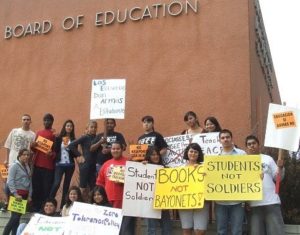
Junior ROTC In High Schools: Pressure To Join
On her first day of high school, Andreya Thomas and several other freshmen at Detroit’s Pershing High School learned they were enrolled in a class called J.R.O.T.C., or Junior Reserve Officers’ Training Corps. School administrators told them the program was mandatory.
Funded by the U.S. military, the program required students to wear military uniforms in class, recite patriotic declarations, and obey orders from an instructor who often yelled at them. When several tried to drop the class, school officials refused permission, even though the Pentagon says that requiring students to take the programs runs counter to its guidelines. The New York Times recently learned that thousands of public-school students were enrolled in J.R.O.T.C. either as a requirement or through automatic enrollment. Most of the schools with high enrollment numbers were attended largely by nonwhite students and those from low-income households.
Critics of Junior ROTC say that the program’s militaristic discipline prioritizes obedience over independence and critical thinking. And as we reported earlier on Law and Disorder, and now noted by the Times, the program’s textbooks often rewrite or downplay the failings of the U.S. government. With its concentration in schools with low-income and nonwhite students, some claim J.R.O.T.C. encourages students to enlist in the military rather than explore other routes to college or jobs in the civilian economy.
Guest – Rick Jahnkow works for two San Diego-based anti-militarist organizations, the Project on Youth and Non-Military Opportunities, or YANO, and the Committee Opposed to Militarism and the Draft. We spoke earlier with Rick about YANO’s J.R.O.T.C. textbook review project.
Hosted by Attorneys Heidi Boghosian, Marjorie Cohn and Julie Hurwitz

—————————————–
























